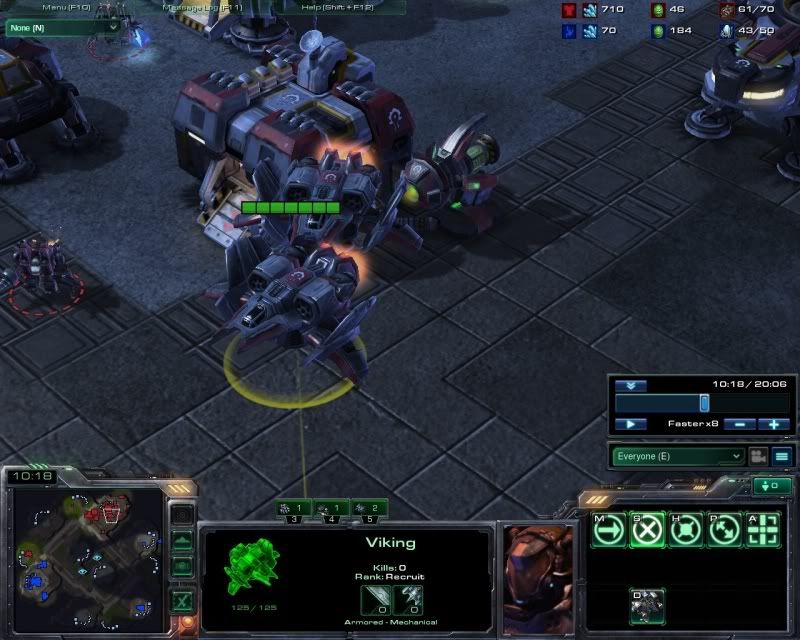
The Viking: Fast, smashing anti-air missiles, wide vision area. Great for both offense & defense.
The Art of War teaches us to rely not on the likelihood of our enemy’s not coming, but on our own readiness to recieve our enemy; not on the chance of our enemy’s not attacking, but rather on the fact that we have made our position unassailable.
I’ve mentioned in the past that attacks on your base are inevitable. It’s only a matter of time before some measure of nastiness is going to roll up on all your expensive buildings and high-tech units. Sooner or later you do need to look to your defenses. Some would say that defenses must take the form of static buildings and choke point formations, while others maintain that the best defense is a good offense. For the sake of argument, we’ll call these two standpoints those of the Tortoise and the Hare.
The Tortoise is appropriate for more static defensive tactics. It’s appropriate that this method is called “turtling”. Like the Night’s Watch in Game of Thrones or the ancient Emperors of China, imposing and immobile defenses can deter or slow down enemy aggression with their mere presence. It also is worth noting that maintaining a strong defensive line can provide a measure of breathing room for you to build esoteric, air-based strategies centered around drops, mineral line harassment or top-tier airborne sieges.
The drawbacks to this defensive methodology is that it’s entirely reactionary. You have to scramble if your opponent comes up with a way around your defenses or attacks a weaker side of your position. It also allows ample time for your opponent to build tactics & counters of their own. Finally, even turtle tactics require resources to maintain their lines and expand, and since defenses are so static and getting caught out of position can be lethal for said defenses, you will be susceptible to strangulation if you aren’t careful.
The Hare takes the fight to the enemy. Rather than waiting behind walls and automated defenses, this methodology pushes out as quickly as possible. It’s a fast and aggressive style of play that relies upon repeated thrusts against the enemy position to throw off their timing. The reason why I would consider this a method of defense is that as long as you’re throwing dudes at the enemy, you’re less likely to get dudes thrown at you. This means you can keep building behind each push, and if you aren’t, you should be.
That’s one of the major problems with relying upon offense. If you become focused on the battles and explosions, you might miss a chance to expand or build. If you look at a replay and see your buildings are idle and you’re flush with minerals or gas, you’re doing something wrong. Attacking quickly and repeatedly can also be fragile in the early game, and if an enemy’s defenses continuously repel your pushes and you don’t adapt quickly enough, your next push might be the opening they’ll exploit to ruin you. Constant attacks can deprive mineral line of defenders, which is just another way of saying counter-attacks can be deadly if your macro is not maintained.
Which way do you tend to lean? How do you make your position unassailable?



Leave a Reply